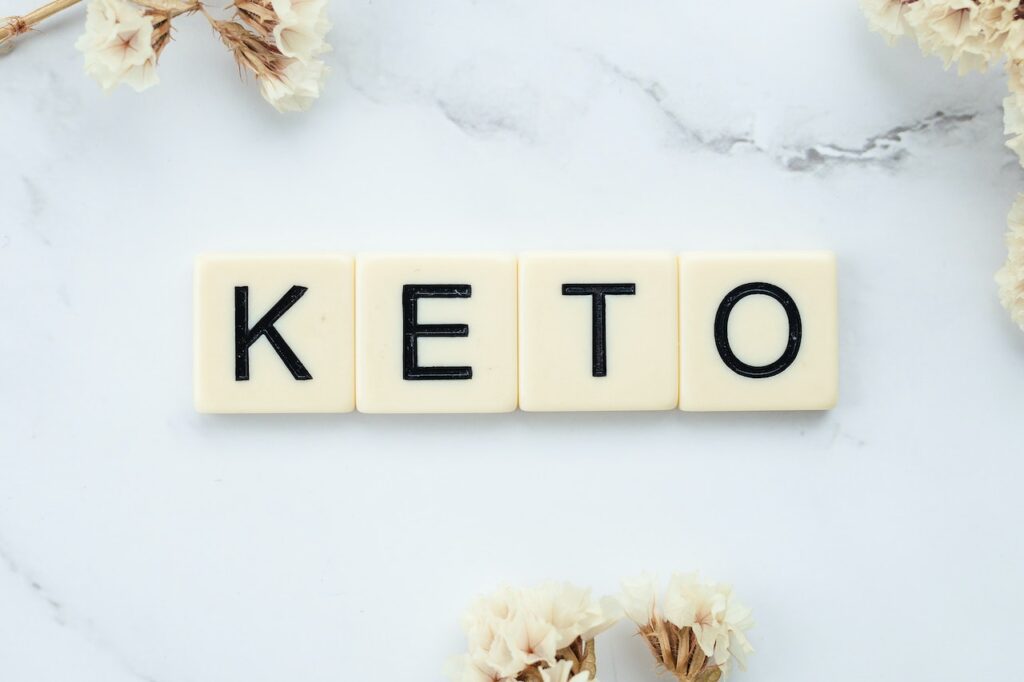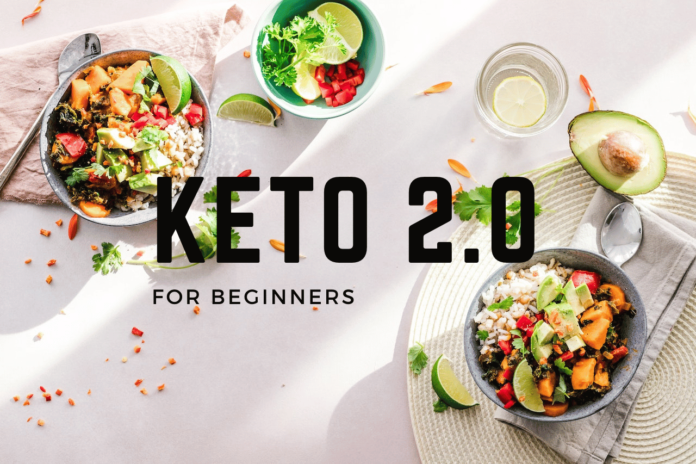The ketogenic diet, commonly known as the “keto diet,” has been gaining popularity in recent years as a way to lose weight and improve health. However, some people have taken the concept a step further with the introduction of “keto 2.0“. But what exactly is the ketogenic 2.0 diet and how is it different from traditional keto? In this article, we’ll explore the ketogenic 2.0 diet in detail and answer the questions you may have. We’ll discuss what it is, how it’s different, what you need to know, and provide a complete guide to the plan. Whether you’re a seasoned keto dieter or new to the world of low-carb eating, this article will give you a comprehensive understanding of the keto 2.0 diet and help you determine if it’s the right fit for you.
What is Keto 2.0 diet?
The keto 2.0 diet is a modified version of the traditional ketogenic diet. It emphasizes whole, nutrient-dense foods, while still keeping carbohydrate intake low to induce ketosis, a metabolic state where the body burns fat for fuel instead of glucose.
The goal of the keto 2.0 diet is to not only support weight loss but also overall health and wellness. In comparison to the original ketogenic diet, which is often criticized for being too restrictive and lacking in essential nutrients, the ketogenic 2.0 diet emphasizes the consumption of high-quality, nutrient-dense foods, such as leafy greens, avocados, nuts, and seeds, and minimizes processed foods and artificial sweeteners. The keto 2.0 diet also allows for the inclusion of some carbohydrates from sources such as non-starchy vegetables, making it a more flexible and sustainable eating plan for long-term health.
How is keto 2.0 different?

Keto 2.0 is different from traditional ketogenic diet in several key ways:
- Emphasis on whole, nutrient-dense foods: It places a greater emphasis on consuming whole, nutrient-dense foods. Such as leafy greens, avocados, nuts, and seeds, instead of processed and artificial ingredients.
- More flexible carbohydrate intake: While the traditional ketogenic diet limits carbohydrates to a strict 20-50 grams per day. The keto 2.0 allows for some flexibility in carbohydrate intake, primarily from non-starchy vegetables.
- Increased protein intake: It recommends a moderate-protein intake, balancing the consumption of healthy fats and proteins to support muscle growth and maintenance.
- Less focus on strict macronutrient ratios: Unlike traditional ketogenic diets, which require strict adherence to specific macronutrient ratios (high fat, moderate protein, low carbohydrate), the ketogenic 2.0 diet allows for more flexibility and individualization, taking into account each person’s unique needs and goals.
- Greater emphasis on sustainability: The keto 2.0 diet is designed to be a more sustainable and balanced approach to eating, promoting long-term health and wellness, rather than just rapid weight loss.
Benefits of Keto 2.0 ?
The Keto 2.0 diet has several potential benefits, including:
- Weight loss: By limiting carbohydrate intake and promoting the production of ketones, the Keto 2.0 diet can lead to rapid weight loss.
- Increased energy levels: A diet high in healthy fats provides a steady supply of energy, helping to avoid the energy crashes often experienced with a high-carb diet.
- Improved mental clarity: A diet low in carbohydrates can lead to improved mental clarity, alertness, and focus.
- Better digestion: By consuming more fiber-rich, nutrient-dense whole foods, the Keto 2.0 diet can improve digestion and gut health.
- Better blood sugar control: By reducing the amount of glucose in the bloodstream, the ketogenic 2.0 diet can help control blood sugar levels and improve insulin sensitivity.
- Decreased inflammation: A diet high in anti-inflammatory foods, such as leafy greens, nuts, and seeds, can help reduce inflammation in the body and promote overall health.
- Better heart health: By reducing the amount of processed foods and unhealthy fats in the diet, the Keto 2.0 diet can improve heart health and lower the risk of heart disease.
The Keto 2.0 diet is designed to be a more balanced approach to eating, promoting overall health and wellness while still supporting weight loss. However, it’s important to work with a healthcare professional to determine if the diet is right for you and to ensure that you’re meeting your nutritional needs.
Risks of Keto 2.0 ?
There are several potential risks associated with the Keto 2.0 diet, including:
- Nutrient deficiencies: By limiting certain food groups, such as carbohydrates and certain fruits and vegetables, the Keto 2.0 diet can lead to nutrient deficiencies.
- Dehydration: A high-fat, low-carbohydrate diet can lead to dehydration, so it’s important to drink plenty of water.
- Constipation: A diet high in fat and low in fiber can lead to constipation.
- Kidney problems: A high-protein, low-carbohydrate diet can put stress on the kidneys and potentially lead to kidney problems in those with kidney disease.
- Liver problems: A high-fat diet can place a strain on the liver, which can be problematic for those with liver disease.
- Increased cholesterol levels: A high-fat diet can raise cholesterol levels, which can increase the risk of heart disease.
- Increased risk of heart disease: By consuming a high-fat diet, it can increase the risk of heart disease, especially if unhealthy sources of fat are consumed.
It’s important to work with a healthcare professional to determine if the ketogenic 2.0 diet is right for you. It’s also important to follow the principles of the Keto 2.0 diet, which includes consuming a variety of nutrient-dense, whole foods, to minimize any potential risks.
Complete Guide to the keto 2.0 diet Plan

Here is a comprehensive guide to the Keto 2.0 diet plan:
- Start with a food focus: Focus on eating whole, nutrient-dense foods, such as leafy greens, avocados, nuts, and seeds. Avoid processed foods, artificial sweeteners, and limit the consumption of dairy and grains.
- Get enough healthy fats: Ensure a steady supply of healthy fats, such as olive oil, coconut oil, avocado, and nuts. These provide energy, promote satiety, and support the production of ketones.
- Limit processed carbohydrates: Limit your intake of processed carbohydrates and sugary foods. Instead, opt for non-starchy vegetables, such as broccoli, spinach, and cauliflower, which are high in fiber and low in carbs.
- Balance protein intake: Balance your protein intake with healthy fats and carbohydrates. A moderate protein intake supports muscle growth and maintenance.
- Personalize your macronutrient ratios: The Keto 2.0 diet allows for more flexibility in macronutrient ratios, so you can personalize your eating plan based on your unique needs and goals.
- Hydrate: Drink plenty of water, especially in the beginning stages of the diet, to support the flushing of excess glucose and other metabolic waste products.
- Track your progress: Keep track of your progress by monitoring your weight, body measurements, and how you feel. This can help you identify any areas that need improvement and adjust your diet as necessary.
- Consult with a professional: Consult with a registered dietitian or healthcare professional before starting any new diet. They can help you determine if the it’s right for you and provide guidance on how to best implement it.
The Keto 2.0 diet is designed to be a more sustainable and balanced approach to eating, promoting long-term health and wellness. By focusing on nutrient-dense whole foods and balancing macronutrient intake, you can support your body’s natural fat-burning processes and achieve your weight loss goals.
Summary
Keto 2.0 is a modified version of the popular ketogenic diet. It focuses on consuming a high-fat, low-carbohydrate, and moderate-protein diet to promote weight loss, increased energy levels. Also improved mental clarity, better digestion, better blood sugar control, decreased inflammation, and better heart health. The ketogenic 2.0 diet also emphasizes consuming a variety of nutrient-dense, whole foods and limiting processed foods and unhealthy fats.
However, it may also lead to potential risks, such as nutrient deficiencies, dehydration, constipation, kidney problems, liver problems, increased cholesterol levels, and an increased risk of heart disease. It’s important to work with a healthcare professional to determine if the ketogenic 2.0 diet is right for you and to monitor any potential health concerns.
In summary, the Keto 2.0 diet is a balanced approach to eating that promotes overall health and wellness while still supporting weight loss. However, it’s important to follow the principles of the ketogenic 2.0 diet and to work with a healthcare professional to minimize any potential risks.




